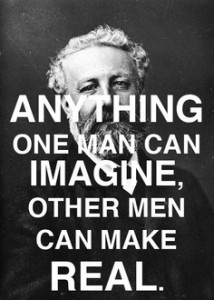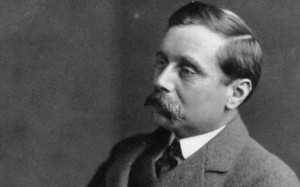Hello, Jeff again. While Barbara wrote about the life of Jules Verne, I was more interested in his works and the lasting impact they have had. In Barbara’s post she mentioned the fact that Verne wrote a series titled “Voyages Extraordinaires” which were published between 1863 and 1905. The series of 65 books strove “to outline all the geographical, geological, physical, and astronomical knowledge amassed by modern science and to recount, in an entertaining and picturesque format … the history of the universe.” In addition, Verne was not interested in writing an encyclopedia. He wanted to create works of literary merit.
So what was so special about Jules Verne? First he was one of the first, if not THE first, author to incorporate the exciting scientific discoveries of the time into popular literature creating a new genre – Science Fiction! Before we go into the details of his stories that eventually became reality, take a minute to think about the time he lived in. The telephone had not been invented, no cars, no airplanes, no radio, limited knowledge of electricity, medicine was just learning about germs and astronomy was still in its infancy. Against this background Verne’s imagination, intelligence, choice of friends and ability to research allowed him to envision things many of which weren’t created until long after his death!
So here are a couple of his visions:
- Submarine life – Verne’s description of the life aboard the Nautilus in his 1870 book “20,000 Leagues Under the Sea”, with the exception of the iconic organ played by Captain Nemo, is very close to life on modern-day submarine which have a double hull, use compressed air and are entirely run by electricity. Many early submarine researchers-inventors such as Simon Lake, an early American industrialist and entrepreneur, credit Verne with inspiring them. Walt Disney was so taken with the book that he made the 1954 “20,000 Leagues Under the Sea” film. This was the only science fiction movie personally directed by Walt and it won two academy awards.(As Barbara mentioned in her post, Jules Verne’s Birthday, it is one of her favorite Jules Verne books and she also likes the Disney film)
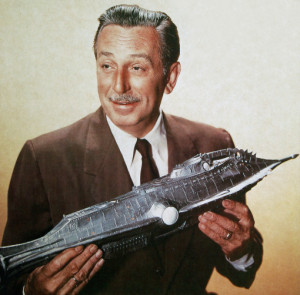
- Travel to the Moon – In his 1865 book “From the Earth to the Moon” Verne predicted weightlessness in space, something that could hardly be imagined at that time. He also predicted the approximate weight of “projectile” which turned out to be almost the same weight as Apollo 11 and cost of the “projectile” in 1865 dollars was only slightly off from the cost of the Apollo program. In the book, the spaceship “launched” from Florida with a three man crew and also splashed down in the ocean upon its return to earth using parachutes to slow it’s descent. All these things happened many years later in the 1960s. On the way back from his mission to the moon Neil Armstrong said, “A hundred years ago, Jules Verne wrote a book about a voyage to the Moon. His spaceship, Columbia, took off from Florida and landed in the Pacific Ocean after completing a trip to the Moon. It seems appropriate to us to share with you some of the reflections of the crew as the modern-day Columbia completes its rendezvous with the planet Earth and the same Pacific Ocean tomorrow.”
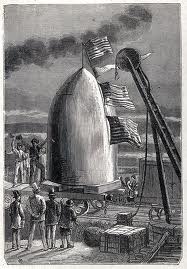
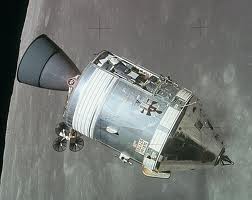
With 65 works to choose from, there are many, many more predictions including fuel cells, world wars and people addicted to the internet. This being said, the real legacy of Jules Verne is not his predictions, but how he inspired generation after generation to dream beyond what was considered possible. Neil Armstrong credited Verne with inspiring the moon missions. Simon Lake, an early American industrialist and entrepreneur, was inspired by him to create his submarines. HG Wells was inspired to write several of his own science fiction books.
I really enjoyed reading the books by Jules Verne, my favorite is “Around the World in 80 Days” followed by “The Mysterious Island”. Many of his works are available for free on the internet as a quick search of “Jules Verne” will reveal. Try to find one of the later translations as some of the early ones left a large portion of the text out of print and frequently botched is calculations / scientific explanations.
Jules Verne’s vision was extraordinary. How is yours? What are your predictions for the next 100 years?

